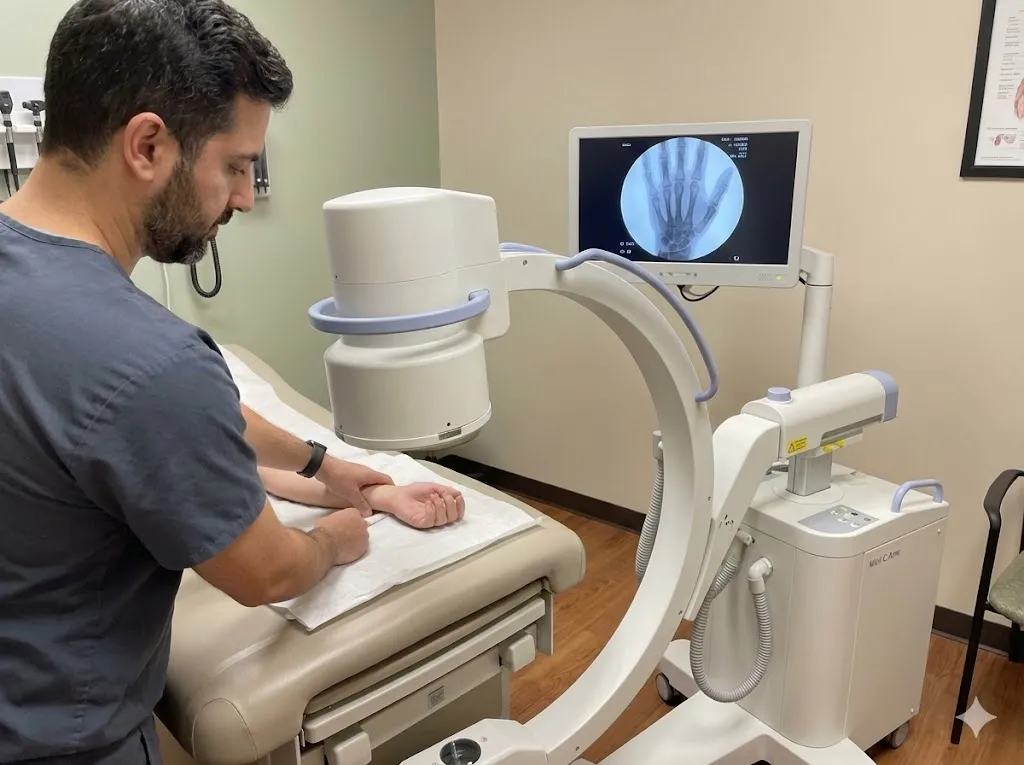Temporomandibular Joint (TMJ) is a joint responsible for facial movements from chewing to smiling. When someone struggles with TMJ dysfunction, they experience pain in this joint. Ear pain, neck pain, headaches, etc. are common problems people face with such a disorder. This can be a frustrating issue and can affect your everyday activities and quality of life. If you are experiencing TMJ discomfort and are looking for, "How to cure TMJ permanently", this article can guide you well! Here, we will discuss effective at-home solutions and other surgical treatment options to permanently treat this condition. Let's start!
How To Cure TMJ Permanently: At-Home Effective Solutions
In mild cases, you can fix TMJ without surgery. However, in severe cases, seek professional help instead. Here are some effective self-care tips:
1. Apply Ice or Heat
You can apply ice for about 10 minutes every two hours to reduce pain and inflammation. Alternatively, heat can also be applied for around 15-20 minutes 2-4 times per day to relieve muscle or joint pain and soothe the muscles.
2. Eat Soft foods
Do not eat chewy and hard foods. If eating fruits, cut them into little pieces and even make the veggies softer by steaming them. Make sure pressure is not involved only on one side of the mouth, so better to chew on both sides.
3. Practice Pain Relief Exercises
Practice some pain relief exercises as they help prevent the discomfort caused due to TMJ and restore the jaw joint's movements.
4. Take Over-the-counter Medications
If pain is intolerable, you can take over-the-counter medications with your doctor's advice. Those may include muscle relaxants, aspirin, or some other over-the-counter painkillers.
5. Reduce Stress
You can consider practicing yoga, relaxation techniques, or meditation to reduce stress and facilitate relaxation.
6. Sleep Well
The TMJ symptoms can worsen by poor sleep posture which can cause strain on your shoulders and neck. So, adjust your sleep position by placing a pillow between the shoulder and neck to reduce strain or pressure on the affected areas.
Medical Treatment Options For TMJ
If the cases are severe and non-surgical treatments are not effective in curing TMJ dysfunction, surgery can be an option. The following are the surgical options:
1. Arthrocentesis
Doctors insert small needles in the joint to flush off the fluid which clears residue and inflammatory byproducts.
2. TMJ Arthroscopy
In this procedure, professionals insert a small thin tube into the joint to clear scar tissue, readjust the disc, or reshape jawbone parts.
3. Modified Condyloma
This surgery option is best for people living with jaw-locking issues. This procedure treats the jawbone instead of the jaw joints.
4. Open-Joint Surgery
If your jaw pain is not curable with the above surgical options, open-joint surgery is the last option to fix or replace the joint.
How To Prevent TMJ?
Early intervention can help treat the TMJ dysfunction before the symptoms become severe. You can follow such preventive measures:
- Maintain good oral hygiene routines.
- Avoid munching hard foods.
- Keep a good posture.
- Use relaxing techniques.
- Take frequent breaks if your work needs long hours of sitting.
- Manage your stress by practicing yoga or meditation.
Summing Up
Since many factors contribute to TMJ dysfunction, treatment options may vary from one person to another. For those wondering how to cure TMJ permanently, the approach depends on the severity of the condition. If the cases are mild, home remedies are best, such as applying ice or heat, eating soft foods, taking over-the-counter medications, etc. However, in severe cases, surgery may be the only option, so seek medical help. During the consultation, doctors will analyze the symptoms and diagnose the potential causes. This will help them determine the right surgical option to treat the specific issue.
Frequently Asked Questions
How to fix TMJ?
To fix TMJ naturally, avoid overuse of jaw muscles, apply heat or ice packs, practice jaw exercises, eat soft food, etc.
Can TMJ be fully healed?
Absolutely, with some right treatment and management, it is possible to fully heal TMJ.
Is TMJ syndrome permanent?
TMJ syndrome is temporary and can resolve with no or little treatment. However, in some cases, people might develop long-term symptoms.
What will happen if TMJ is not treated?
You can experience significant pain and stiffness in your jaw that can move to your head and cause migraines and tension headaches.
Can you develop TMJ later in life?
Yes, anyone can struggle with TMJ later in life and there is no specific age
Reviewed by







